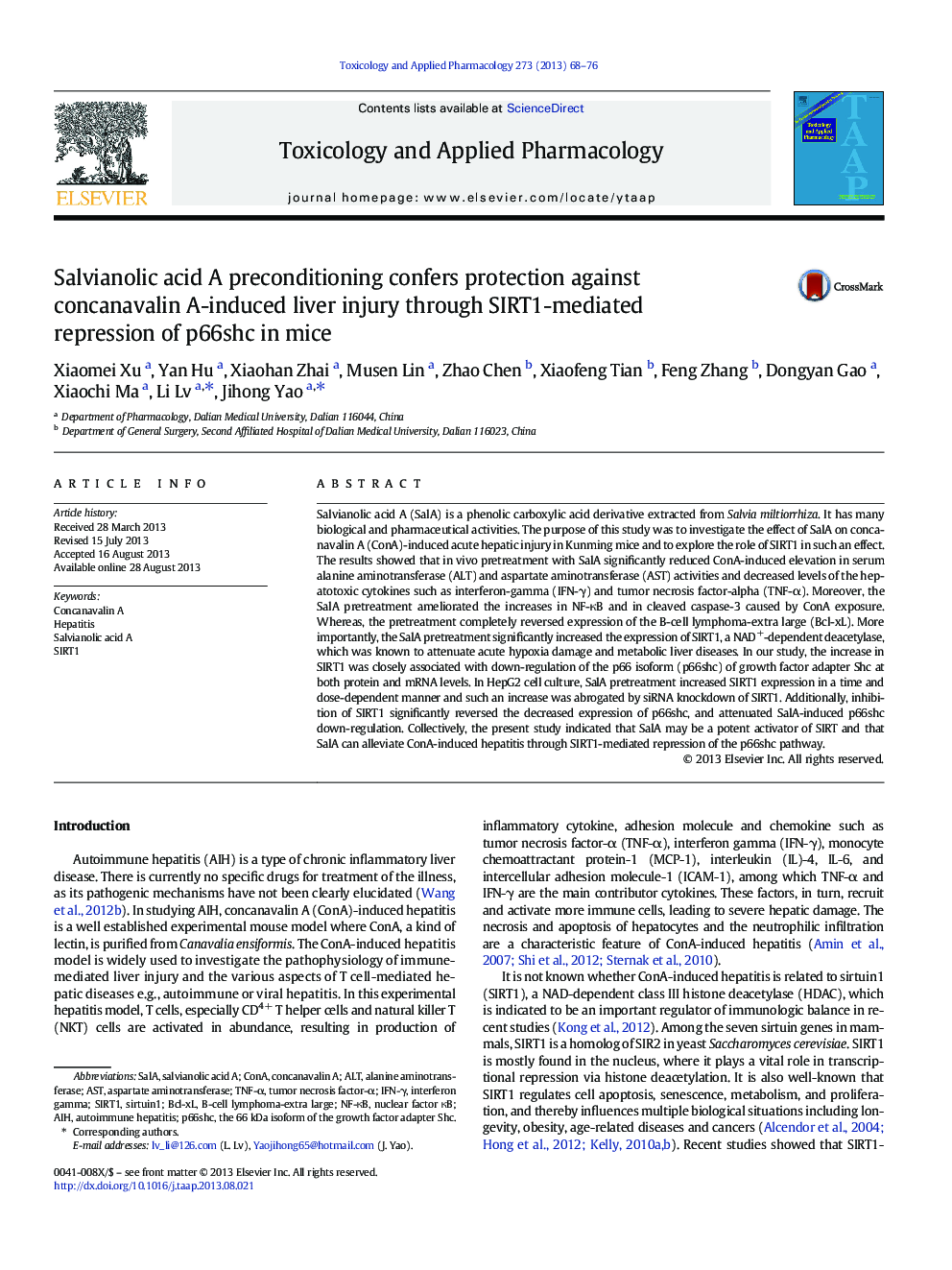| Article ID | Journal | Published Year | Pages | File Type |
|---|---|---|---|---|
| 5846525 | Toxicology and Applied Pharmacology | 2013 | 9 Pages |
Abstract
Salvianolic acid A (SalA) is a phenolic carboxylic acid derivative extracted from Salvia miltiorrhiza. It has many biological and pharmaceutical activities. The purpose of this study was to investigate the effect of SalA on concanavalin A (ConA)-induced acute hepatic injury in Kunming mice and to explore the role of SIRT1 in such an effect. The results showed that in vivo pretreatment with SalA significantly reduced ConA-induced elevation in serum alanine aminotransferase (ALT) and aspartate aminotransferase (AST) activities and decreased levels of the hepatotoxic cytokines such as interferon-gamma (IFN-γ) and tumor necrosis factor-alpha (TNF-α). Moreover, the SalA pretreatment ameliorated the increases in NF-κB and in cleaved caspase-3 caused by ConA exposure. Whereas, the pretreatment completely reversed expression of the B-cell lymphoma-extra large (Bcl-xL). More importantly, the SalA pretreatment significantly increased the expression of SIRT1, a NAD+-dependent deacetylase, which was known to attenuate acute hypoxia damage and metabolic liver diseases. In our study, the increase in SIRT1 was closely associated with down-regulation of the p66 isoform (p66shc) of growth factor adapter Shc at both protein and mRNA levels. In HepG2 cell culture, SalA pretreatment increased SIRT1 expression in a time and dose-dependent manner and such an increase was abrogated by siRNA knockdown of SIRT1. Additionally, inhibition of SIRT1 significantly reversed the decreased expression of p66shc, and attenuated SalA-induced p66shc down-regulation. Collectively, the present study indicated that SalA may be a potent activator of SIRT and that SalA can alleviate ConA-induced hepatitis through SIRT1-mediated repression of the p66shc pathway.
Keywords
Related Topics
Life Sciences
Environmental Science
Health, Toxicology and Mutagenesis
Authors
Xiaomei Xu, Yan Hu, Xiaohan Zhai, Musen Lin, Zhao Chen, Xiaofeng Tian, Feng Zhang, Dongyan Gao, Xiaochi Ma, Li Lv, Jihong Yao,
